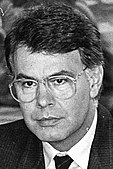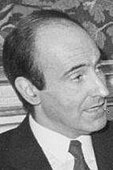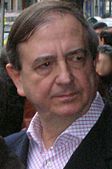| |||||||||||||||||||||||||||||||||||||||||||||||||||||||||||||||||||||||||||||||||||||||||||||||||||||
All 350 seats in the Congress of Deputies and 208 (of 254) seats in the Senate 176[a] seats needed for a majority in the Congress of Deputies | |||||||||||||||||||||||||||||||||||||||||||||||||||||||||||||||||||||||||||||||||||||||||||||||||||||
|---|---|---|---|---|---|---|---|---|---|---|---|---|---|---|---|---|---|---|---|---|---|---|---|---|---|---|---|---|---|---|---|---|---|---|---|---|---|---|---|---|---|---|---|---|---|---|---|---|---|---|---|---|---|---|---|---|---|---|---|---|---|---|---|---|---|---|---|---|---|---|---|---|---|---|---|---|---|---|---|---|---|---|---|---|---|---|---|---|---|---|---|---|---|---|---|---|---|---|---|---|---|
| Opinion polls | |||||||||||||||||||||||||||||||||||||||||||||||||||||||||||||||||||||||||||||||||||||||||||||||||||||
| Registered | 29,117,613 | ||||||||||||||||||||||||||||||||||||||||||||||||||||||||||||||||||||||||||||||||||||||||||||||||||||
| Turnout | 20,524,858 (70.5%) | ||||||||||||||||||||||||||||||||||||||||||||||||||||||||||||||||||||||||||||||||||||||||||||||||||||
| |||||||||||||||||||||||||||||||||||||||||||||||||||||||||||||||||||||||||||||||||||||||||||||||||||||
| |||||||||||||||||||||||||||||||||||||||||||||||||||||||||||||||||||||||||||||||||||||||||||||||||||||
The 1986 Spanish general election was held on Sunday, 22 June 1986, to elect the 3rd Cortes Generales of the Kingdom of Spain. All 350 seats in the Congress of Deputies were up for election, as well as 208 of 254 seats in the Senate.
The election was held after the referendum on Spanish membership in NATO in March 1986 had resulted in a surprising win for the 'In' camp headed by Prime Minister Felipe González. Reinforced from the referendum result, the Spanish Socialist Workers' Party (PSOE) sought to take advantage of the favorable political situation. The election resulted in the PSOE winning a second consecutive—albeit diminished—majority with 184 out of 350 seats. Its immediate competitor, Manuel Fraga's People's Coalition, an electoral alliance formed by People's Alliance (AP), the People's Democratic Party (PDP) and the Liberal Party (PL), remained stagnant with a similar result to the one obtained in 1982 by the AP–PDP coalition. The disappointing election result caused the Coalition to break apart shortly afterwards.
Former PM Adolfo Suárez's Democratic and Social Centre (CDS) came out in third place with nearly 1.9 million votes, 9.2% of the share and 19 seats. The Communist Party of Spain (PCE) contested the election within the newborn left-wing United Left (IU) coalition, slightly improving on the PCE's result in 1982 with 4.6% and 7 seats and holding its own against the Communists' Unity Board (MUC), Santiago Carrillo's split party founded after him being expelled from the PCE, which won no seats.
Two future prime ministers (José Luis Rodríguez Zapatero and Mariano Rajoy) were first elected as deputies at this election.
Cite error: There are <ref group=lower-alpha> tags or {{efn}} templates on this page, but the references will not show without a {{reflist|group=lower-alpha}} template or {{notelist}} template (see the help page).








